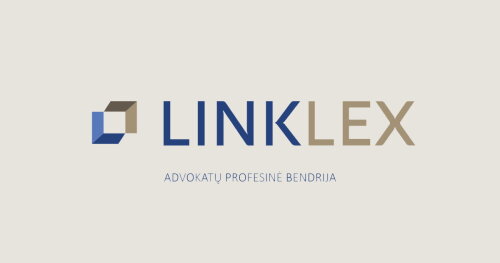Best International Trade Law Lawyers in Vilnius
Share your needs with us, get contacted by law firms.
Free. Takes 2 min.
List of the best lawyers in Vilnius, Republic of Lithuania
About International Trade Law in Vilnius, Republic of Lithuania
International Trade Law in Vilnius, Republic of Lithuania, is governed by both national regulations and international agreements to which Lithuania is a signatory. As a member of the European Union, Lithuania adheres to EU trade regulations, which play a significant role in shaping the country's trade policies. Vilnius, being the capital and largest city of Lithuania, houses several key institutions and legal entities specializing in international trade. The country's strategic location provides businesses with various trade opportunities, emphasizing the importance of having a clear understanding of both local and international trade laws.
Why You May Need a Lawyer
Seeking legal advice in international trade law can be crucial in several situations, including but not limited to, navigating complex import/export regulations, resolving trade disputes, ensuring compliance with EU trade policies, drafting and reviewing international contracts, and understanding tariffs and trade barriers. Having a lawyer can help businesses mitigate legal risks and ensure smooth operations in cross-border transactions.
Local Laws Overview
Lithuania's international trade law is influenced by EU regulations, which encompass customs procedures, tariffs, and trade policy enforcement. Key local laws relevant to international trade include the Customs Law of Lithuania, which regulates customs procedures and the Import/Export Law, which governs trade activities. Additionally, competition and consumer protection laws may impact international businesses operating in the region.
Frequently Asked Questions
What is the role of customs in international trade in Lithuania?
Customs in Lithuania are responsible for collecting duties and taxes on imports and exports, enforcing trade regulations, and preventing illegal trade activities. Compliance with customs procedures is essential for smooth international trade operations.
How do EU regulations impact international trade in Vilnius?
EU regulations harmonize trade rules across member states, affecting areas like tariffs, customs, product standards, and competition policy. Businesses in Vilnius must comply with these uniform regulations when engaging in international trade.
What are common legal challenges faced in international trade?
Common challenges include ensuring regulatory compliance, handling cross-border disputes, understanding different jurisdictional laws, and managing the impact of political and economic changes on trade agreements.
How can I protect my business in international trade agreements?
Implementing well-drafted contracts with clear terms and conditions, seeking legal advice, and understanding applicable laws are crucial steps in protecting your business in international trade agreements.
What is the procedure for resolving international trade disputes?
Dispute resolution may involve negotiations, arbitration, or litigation. Lithuania, following EU protocols, often favors arbitration for international trade disputes. Local legal expertise can guide you through the resolution process effectively.
Are there specific taxes applicable to international trade in Lithuania?
Yes, import duties, value-added tax (VAT), and excises may apply depending on the type of goods and services traded. Understanding these taxes is crucial for cost-effective trade operations.
What kinds of trade agreements is Lithuania part of?
Lithuania, as an EU member, is part of numerous free trade agreements with countries across the globe, facilitating easier market access and trade conditions for businesses.
How do import/export regulations impact my business?
These regulations determine what goods can be imported or exported, applicable tariffs, and compliance requirements. Non-compliance can lead to penalties or trade restrictions.
How can I ensure compliance with international trade laws?
Regularly updating your business practices according to current regulations, employing compliance officers, and seeking legal counsel can help ensure compliance with international trade laws.
What is the procedure for obtaining permits for international trade?
Obtaining permits typically involves submitting necessary documents, meeting statutory requirements, and complying with local trade regulations. Legal assistance can streamline this process for businesses.
Additional Resources
Several resources can aid individuals and businesses in understanding and navigating International Trade Law in Vilnius, including:
- The Ministry of Economy and Innovation of Lithuania, which offers guidance on trade policies and regulations.
- The Lithuanian Customs Department, which provides information on customs procedures and requirements.
- European Union's official portals for trade, offering comprehensive details on EU regulations and agreements.
Next Steps
If you require legal assistance in international trade law, consider consulting with a lawyer specializing in this field. Research local law firms in Vilnius with a strong background in international trade. Ensure they have a good understanding of both EU and Lithuanian trade laws. It may also be beneficial to contact the Lithuanian Chamber of Commerce for referrals or guidance on reputable law firms. Being proactive and informed will help facilitate smooth international trade operations for your business.
Lawzana helps you find the best lawyers and law firms in Vilnius through a curated and pre-screened list of qualified legal professionals. Our platform offers rankings and detailed profiles of attorneys and law firms, allowing you to compare based on practice areas, including International Trade Law, experience, and client feedback.
Each profile includes a description of the firm's areas of practice, client reviews, team members and partners, year of establishment, spoken languages, office locations, contact information, social media presence, and any published articles or resources. Most firms on our platform speak English and are experienced in both local and international legal matters.
Get a quote from top-rated law firms in Vilnius, Republic of Lithuania — quickly, securely, and without unnecessary hassle.
Disclaimer:
The information provided on this page is for general informational purposes only and does not constitute legal advice. While we strive to ensure the accuracy and relevance of the content, legal information may change over time, and interpretations of the law can vary. You should always consult with a qualified legal professional for advice specific to your situation.
We disclaim all liability for actions taken or not taken based on the content of this page. If you believe any information is incorrect or outdated, please contact us, and we will review and update it where appropriate.














